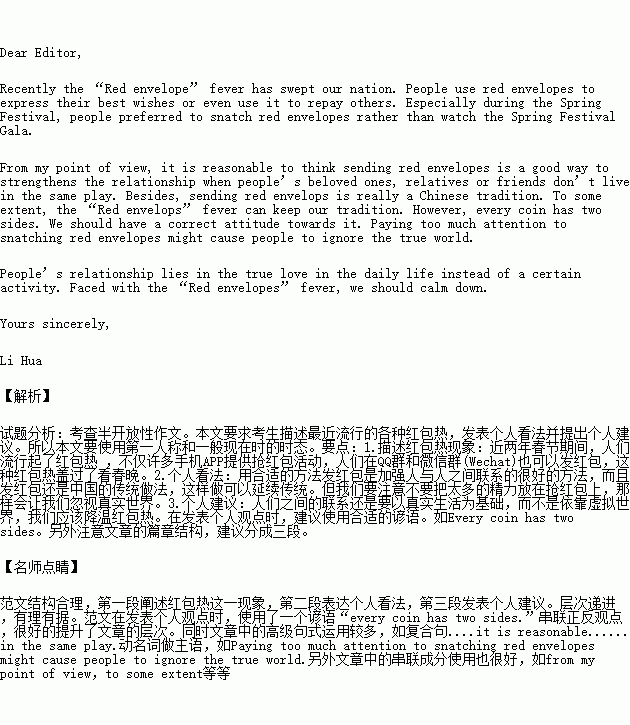题目内容
书面表达
近两年春节期间,人们流行起了红包热 ,不仅许多手机APP提供抢红包活动,人们在QQ群和微信群(Wechat)也可以发红包,这种红包热盖过了看春晚。某英语杂志社就这种现象开专栏供读者来信交流,假如你是李华,请你写一封英语信给杂志社编辑,内容如下:1. 简要描述这一现象;2. 谈谈你对这一现象的看法;3. 提出你的建议。
要求:词数 100 左右;开头结尾已给出,不计入词数。
参考词汇:snatch red envelopes 抢红包
Dear Editor,
Recently the “Red envelope” fever has swept our nation. ________________________________________
________________________________________
________________________________________
________________________________________
________________________________________
________________________________________
Yours sincerely,
Li Hua
练习册系列答案
相关题目


